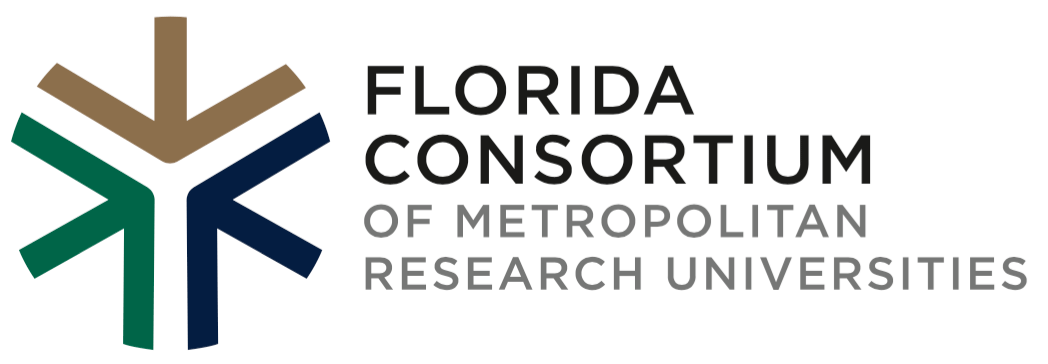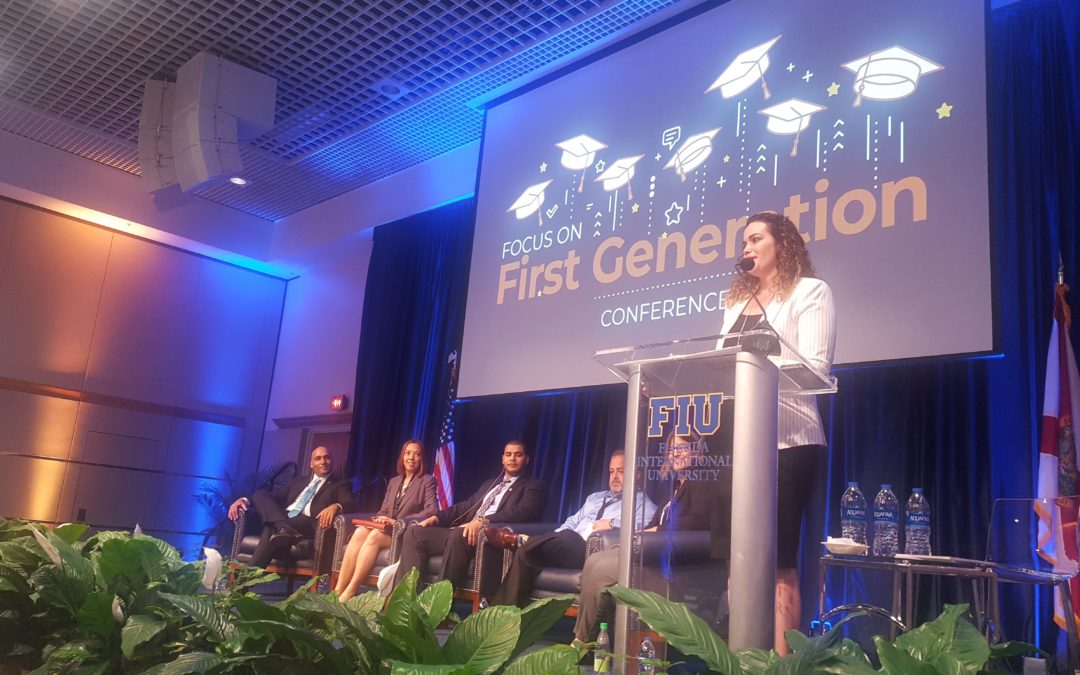Guest Contributor, Marisel Herrera, Director, Training and Development, Arizona State University
“People will forget what you said, people will forget what you did, but people will never forget how you made them feel.” This quote by the poet and activist Dr. Maya Angelou embodies my experience at the Focus on First Generation Conference held at Florida International University in Miami, Florida. Even before I arrived as a presenter to the conference, I clearly sensed that I was being prepared to succeed and maximize this experience. The email communications with the conference planning committee, the complimentary hotel lodging provided, and the event updates from the Florida Consortium of Metropolitan Research Universities conveyed that my presence was valued and offered important context setting for salient issues in the state of Florida. Combined they were a simple, but impactful way of setting a positive first impression for what would be one of the most memorable conferences I have attended.
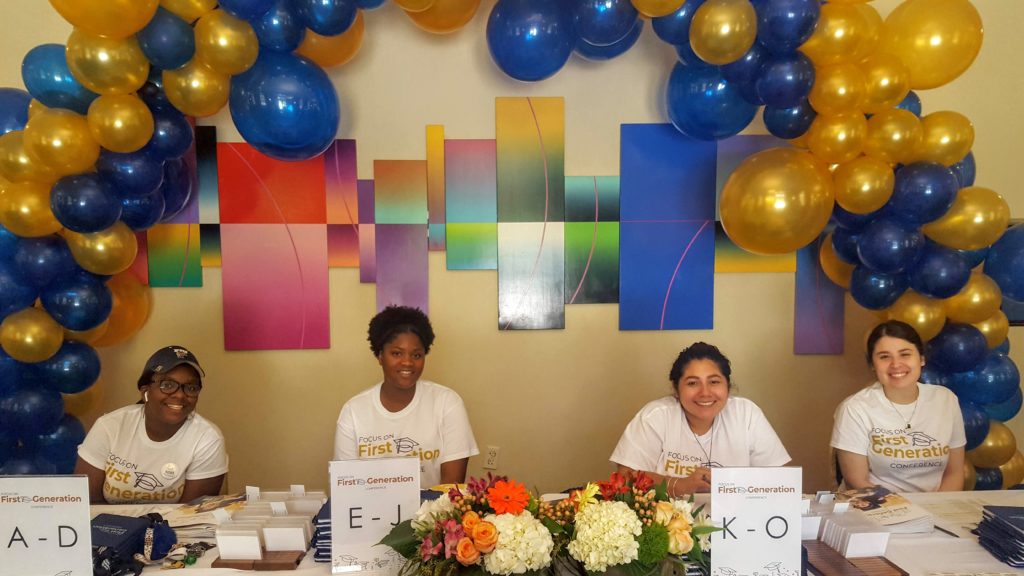
When I arrived at the FIU campus I was struck by its energy, level of activity and diversity. There were many students promoting their student organizations and causes on the perimeter of the lawn while student conference greeters and ushers wearing first gen shirts eagerly offering directions and conference assistance. When I entered the student union, I was welcomed by Caribbean music –salsa, merengue, reggaeton, blasting from a dj station and filled with countless students socializing, jewelry vendors, and more. The music, the multitude of brown and black students representing so many cultures was a welcomed shock. While my home institution Arizona State University has large number of diverse students from all over the world, in comparison over 80% of FIU undergraduates are minorities and many are first generation in college students.
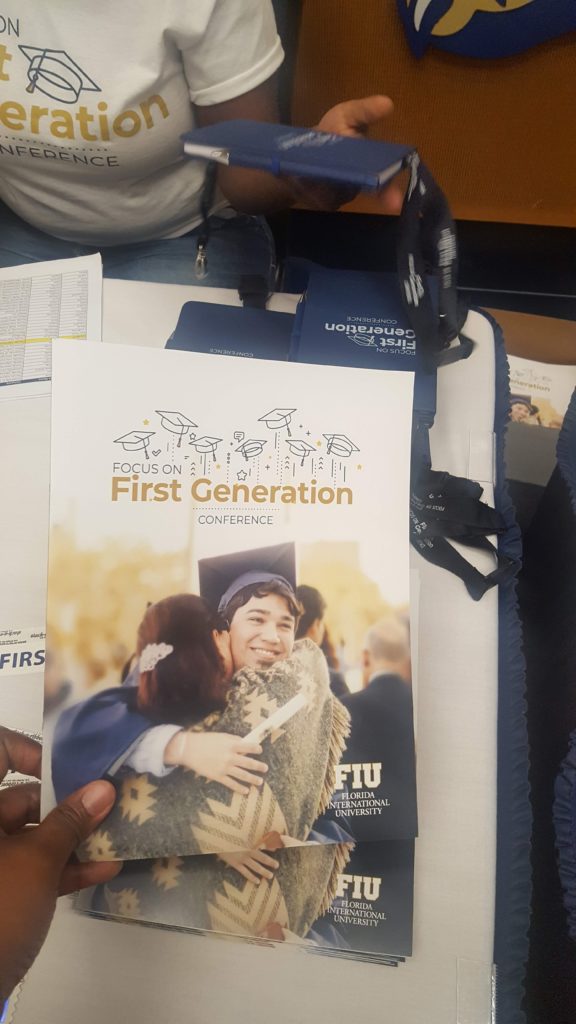
As a first- generation Puerto Rican scholar- practitioner, this resonated deeply with me. As an educator and speaker, I have travelled to many campuses but never experienced such a poignant cultural and immediately validating experience. I was a visitor but instantly felt a connection, like this was not a first time visit but rather a homecoming- one that was not just occurring because of a set aside heritage event but the norm for this university. FIU clearly is a campus that embraces it’s diversity as a great asset. This sense of belonging was only augmented when I saw among the student union restaurants, a Café Bustelo vendor! I literally felt inner, childlike glee swell up as I saw and smelled the coffee that defined the memories of so many Latino families like my own for decades, being served.
As a first-generation Latina I had grown accustomed to managing two separate worlds and the bicultural stress that accompanies that reality. In this seemingly insignificant moment – over un cafecito- those worlds were beautifully integrated. As I ordered my coffee and a pastel de guava, I was struck by the power of representation, of language, and of connection. I watched young men place their orders while the cooks and cashiers spoke lovingly to them, referring to them as mi’jo, remembering their food preferences, pausing to ask about their studies, and offering them blessings as is customary when departing. These women, these workers are part of an often invisible retention army- who provide a place of authentic connection to so many students across campuses. Built into the conference agenda another simple but affirming experience of gathering together for a “cortadito” – a Spanish traditional shot of espresso occurred at 3 pm. The connectivity of shared cultural and linguistic roots even across a restaurant counter cannot be ignored. They provide nourishment for a student’s soul and are tangible reminders to students, like first generation ones, of their value and of their why.
The right person at the right time can change a life is the core belief of Arizona State University’s First-Year Success Center. My presentation, “Caring (Courageously) at Scale High-Impact Success Coaching at ASU “ shared how we were able to leverage meaningful relationships to support the success of thousands of students annually at the largest university in the nation, including significant numbers of first generation students. Established in 2012, the First-Year Success Center at Arizona State University is an award-winning, high-impact, dynamic Center that treats every student like a VIPs through a variety of peer coaching services. This VIP approach permeates all our offerings, even as we average 17,000 coaching appointments per academic year. Success coaching empowers students to thrive both inside and outside the classroom, and it’s customized to individual interests, strengths, and needs. Demonstrating how the right person at the right time can change a life, FYS coaches work with students on everything from transition (adjusting to college life) to transformation (realizing potential and dreams). During the 2017-2018 year alone, the Center’s Game Changers First Generation Scholars Success Coaching conducted 4,621 coaching appointments with first generation students (https://fys.asu.edu/first-gen-coaching). First-generation students comprise 35% of the ASU student population. Among FYS-targeted first-generation freshmen, 67.0% engaged with coaching; 1,423 freshmen were coached. The difference in fall 2018 registration between targeted first-generation freshmen who were coached by FYS (81.9%) and those who were not coached (68.2%) was 13.7%. Success coaching has also proven to be positively related to and predictive of graduation.
Additional ways we support first generation students include an annual fall welcome event, first-generation pages on our website containing first-generation student videos, success tips and resources, targeted communications, and participation in National First Gen Day and a summer First Gen Zone training for faculty and staff. The First-Year Success Center has also partners to support first-generation student study abroad and a GEAR Up grant. More broadly, Arizona State University has had a long-standing to access and excellence expressed through various initiatives and through President Dr. Crow’s identification as a first generation student as well.
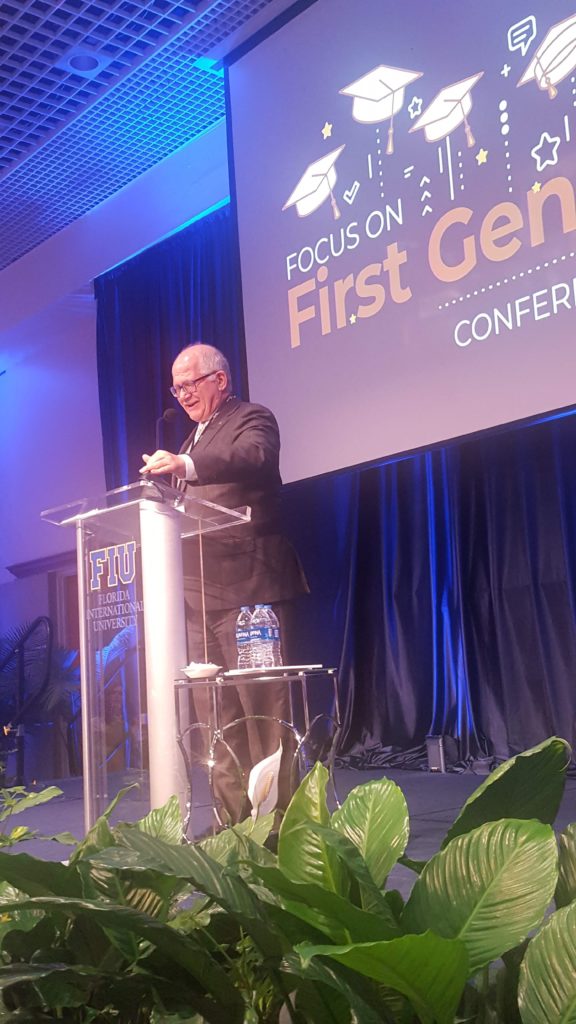
At the Focus on First Generation conference, I made new friends, strategized student support with colleagues, and enjoyed information-rich sessions. What most stood out was the power of intentional spaces and authentic connections. People, at the end of the day, not abstract policies or programs, retain students. People will forget what you said, people will forget what you did, but people will never forget how you made them feel. I am grateful for this unforgettable conference experience.
